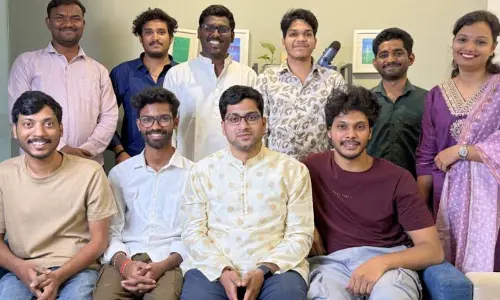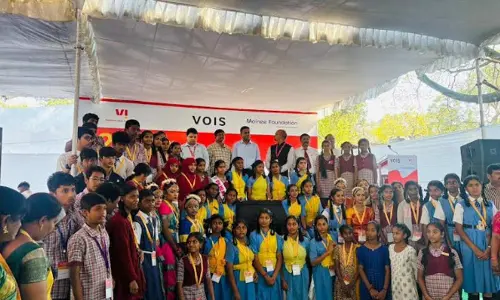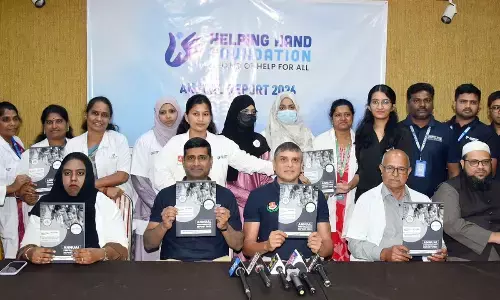Why India must take first step towards 5G rollout this year

Why India must take first step towards 5G rollout this year
By 2025, 5G networks are expected to cover one-third of the worlds population, and South Korea, China and the US are the countries which would lead the world in developing and deploying 5G technology. Will India be finally able to join the global 5G bandwagon this year?
New Delhi: By 2025, 5G networks are expected to cover one-third of the worlds population, and South Korea, China and the US are the countries which would lead the world in developing and deploying 5G technology. Will India be finally able to join the global 5G bandwagon this year?
Reports surfaced late last month that 5G spectrum may finally see the light of the day in 2022. The Telecom Regulatory Authority of India (TRAI) has reportedly informed the Department of Telecommunications (DoT) that it is likely to submit 5G pricing recommendations in March. It means that if things go as planned, the country can witness 5G auction in July-August.
Despite the buzz around 5G, telecom companies, along with private players, are only conducting 5G trials in the country.
Bharti Airtel has successfully conducted India's first 5G trial in the 700 MHz band in partnership with Nokia, on the outskirts of Kolkata. Earlier last year, Airtel demonstrated India's first 5G experience over a live 4G network. It also demonstrated India's first rural 5G trial as well as the first Cloud gaming experience on 5G.
Reliance Jio is another leading player in the field of 5G testing technology. The company has successfully conducted trials of connected drones on its indigenous 5G network.
According to Mukesh Ambani, Chairman and Managing Director, Reliance Industries Limited (RIL), India must complete the migration from 2G to 4G to 5G at the earliest and the rollout of 5G should be India's national priority.
Jio has developed a 100 per cent home-grown and comprehensive 5G solution, which is fully Cloud native and digitally managed.
"Because of its converged, future-proof architecture, Jio's network could be quickly and seamlessly upgraded from 4G to 5G," according to Ambani.
Nokia and Vodafone Idea have also partnered to trial 5G services using E-band in areas where fibre is challenging to deploy.
Vodafone Idea is currently conducting 5G trials in India using the trial spectrum in the 3.3GHz-3.6GHz band and mmWave band (24.25GHz-28.5GHz). Earlier, Vodafone Idea had achieved peak speed of over 3.7 Gbps during its 5G trials in Pune.
The DoT had approved applications of Reliance Jio, Bharti Airtel, Vodafone and MTNL for 5G trials.
The 5G technology will represent around 39 per cent of mobile subscriptions in India at the end of 2027, estimated at about 500 million subscriptions, says a latest Ericsson report.
According to Viswanath Ramaswamy, Vice President, Technology, IBM Technology Sales, IBM India/South Asia, 5G offers enormous potential to advance industries across streaming, communications, advanced robotics and manufacturing.
"However given the complexity of telecom networks today, it is clear that the tools, systems and methods need to be orchestrated for the network of tomorrow," he said.
Artificial Intelligence (AI) has the potential to quickly enable changes in the network that optimise network performance and reliability by applying Machine Learning, helping "Communications services providers (CSPs) deliver on the promise of 5G by providing faster customer experiences," Ramaswamy added.
India being a 'mobile first' country, cellular internet is central to every person's digital lives as they communicate, consume and create content, commerce and connect with the community.
"As smartphone users mature, they use devices more and more for creating 4K/8K videos, clicking high-resolution 108MP+ photos, streaming HD content and conducting video conferencing calls. The higher bandwidth and higher capacity technology such as 5G, thus, becomes the cornerstone to enable these advanced experiences," Neil Shah, Vice President, Research, at Counterpoint, told IANS.
Several smartphone players have also started testing 5G in India and globally.
OPPO in November 2021 announced that it has successfully conducted its first VoNR (Voice/Video on New Radio) call from its Hyderabad 5G lab.
The 5G VoNR calls were made using the latest Reno6 series smartphone and an end-to-end 5G Standalone (SA) network powered by Keysight test solutions at the Hyderabad 5G Innovation lab of OPPO.
OnePlus has announced that the company is investing almost $30 million to scale up 5G research and development labs to take 5G technology to more users worldwide.
Technology services major Capgemini has also bolstered its collaboration with Swedish telecommunications giant Ericsson to accelerate the deployment of 5G solutions via its 5G lab in Mumbai.
The bigger benefit 5G can bring is beyond personal transformation, "Which is enterprise and social transformation with excess capacity, lower latencies and higher throughputs with use-cases such as Private Networks and Fixed Wireless Access (FWA) Broadband, bridging the digital divide," Shah added.
In India, an affordable 5G for the masses may take a longer time to happen, but the country must take the first step towards it this year, so that it catches up with the world on 5G fast.










